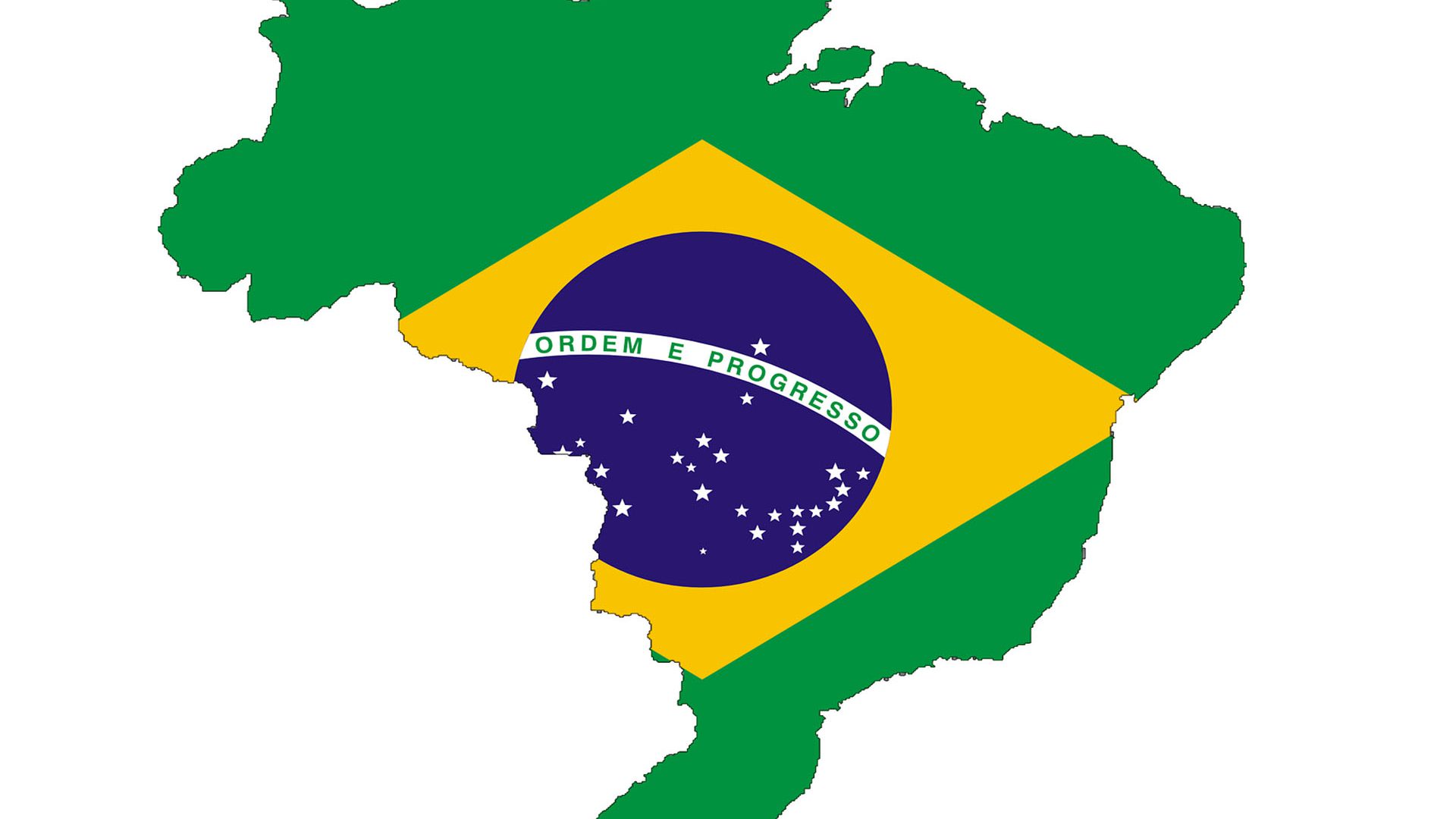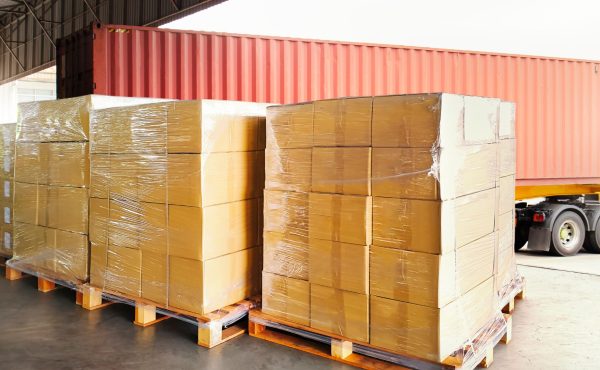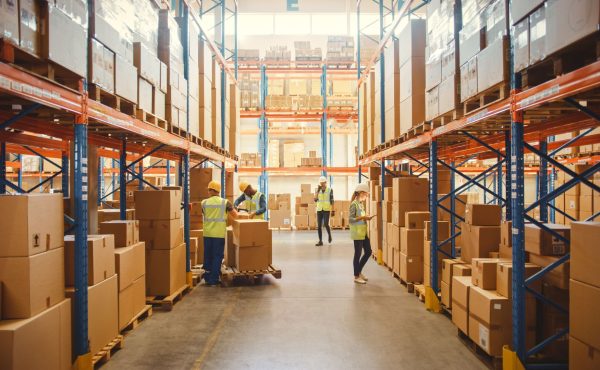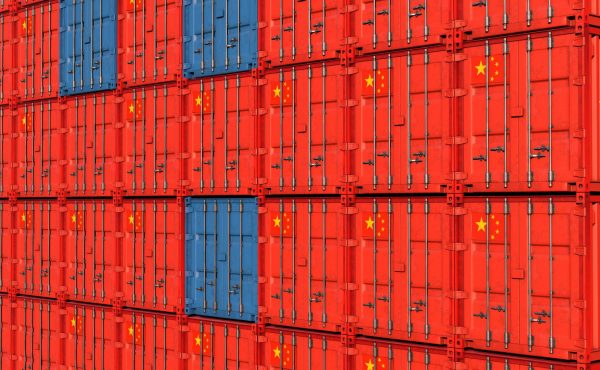Export to Brazil, a country of opportunities for companies
Export to Brazil, why is it an attractive market?
Brazil is a large market. Its 8.5 million square kilometers of surface and its more than 213 million inhabitants, 85% living in urban environments, make export to Brazil an opportunity because it is a country with a high potential for consumption.
Brazil is the thirteenth largest economy in the world. GDP in Brazil is expected to reach 1,620.00 USD Billion by the end of 2021, according to Trading Economics global macro models and analysts’ expectations. In the long-term, the Brazil GDP is projected to trend around 1,750.00 USD Billion in 2022 and 1,890.00 USD Billion in 2023, according to our econometric models.
What does Brazil matter and from where?
Brazil’s trade surplus widened to USD 7.4 billion in March of 2022 from USD 6.5 billion in the same month last year, but below the market forecasts of USD 9 billion. Exports rose 25 percent on year to USD 29.1 billion amid higher sales of agricultural products (+36.8 percent) and manufactured products (+35.2 percent). Among trading partners shipments advanced from China, Hong Kong, Macau and USA. Meanwhile, imports surged 27.1 percent on year to a smaller value of USD 21.7 billion, led by purchases of manufactured (+25.2 percent) and mining products (+94.9 percent). Imports went up mainly to China, Hong Kong and Macau, the US and the EU.
The consumption potential of the Brazilian population and its economic leadership in Mercosur make it an attractive market for companies that want to sell their products. Exporting to Brazil is not complex, but there are certain peculiarities because the country was only opened up to imports in the 1990s.
This positive evolution of Brazil’s trade shows that the country is opening up to the outside world, especially to countries in Latin America, the Middle East and Asia, the United States, China and the European Union are important trading partners.
“Brazil is increasing its imports and is an attractive market for Spanish exporters”
Brazilian imports from Spain in 2020 generated a total FOB value of US$ 2.8 billion in revenue, which is lower than the previous year 2019, a drop of 11.8%. Spain is the 16th largest export economy in the world and the 28th most complex economy according to the Economic Complexity Index (ECI), and 14th in imports.
Exporting to Brazil is an opportunity because Spain is Brazil’s 12th largest trading partner, behind China, the United States, Argentina, Germany, South Korea, Mexico, Italy, Japan, France, Chile and India.
The main product imported from the Spanish country to Brazil in 2020 was Petroleum fuel oils or bituminous minerals (excluding crude oils), which generated revenue of US$ 344 million, representing 13% of total Spanish imports to Brazil. Organo-inorganic compounds, heterocyclic compounds, their salts, and sulfonamides appear in our second position as the main product imported from Spain to Brazil in 2020 and represented 5.4% of imports from the country.
“Brazil is a potential market in sectors related to infrastructure, the environment, the steel industry, the agro-food sector or smart cities”
What can Spanish companies export to Brazil?
Brazil is beginning to develop an open import culture and entities such as the Brazil- Spain Chamber of Commerce are working to help Spanish companies export to Brazil as it is a potential market.
In addition, the Brazilian administration, through the Ministry of Industry, Foreign Trade and Services of Brazil, is promoting various investment projects in different areas such as transport, water and energy infrastructures, which require materials and equipment. The environment is another sector that presents opportunities to export to Brazil, since the country is betting on renewable energies and efficient waste management and recycling.
Another interesting sector for the Spanish export company is agriculture and agri- food. Brazil is an importer of machinery and fertilizers for agriculture and of products such as olive oil, wine and fruit.
It is also interesting to export to Brazil steel products and equipment for smart cities, sectors that present interesting opportunities for those Spanish industries that want to sell their raw materials and goods in Brazil.
Knowing the market before exporting to Brazil
The exporter who wants to sell his goods in Brazil must know the procedures and requirements to be met, especially those related to administrative and customs regulations.
At Logisber we are experts in the Brazilian market and we have our own office in the city of Sao Paulo, Logisber Forwarding do Brasil Ltda. We know all the details to export and deliver your goods to Brazil.
“At Logisber we are experts in the Brazilian market and we know all the ins and outs of exporting your goods to Brazil”
Before starting any operation, a company that wants to export to Brazil must know the procedures required for the product or merchandise to be introduced in the country.
Siscomex (Integrated System of Foreign Trade) is the platform that collects and integrates all the procedures required in a commercial operation. This system interrelates the Brazilian government agencies with the agents that have active participation in the export and import processes.
According to the Department of Trade Promotion and Investment of the Brazilian Ministry of Foreign Affairs, a series of rules and procedures must be followed for an import to be viable and accepted.
“The Siscomex portal interrelates Brazil’s government bodies with exporters and importers”
The first step in exporting to Brazil is to catalogue the goods according to their tariff classification in Brazil, NCM (Nomenclatura Comum do Mercosul), and use the Siscomex online system. It is also necessary to have representation before the Brazilian customs and to know the customs procedure and the administrative, tax and financial treatment that the intervening bodies give to the imports. Likewise, depending on the merchandise, it is important to know whether there are tariff preferences or special customs treatments in Brazil that affect the specific product to be exported.
Through Logisber Forwarding do Brasil Ltda, based in Sao Paulo, we can manage from beginning to end any international trade operation.

What are the procedures for exporting to Brazil
Once we have the general information of the steps to follow to export to Brazil, we have to start all the documentary processing.
To send a merchandise to Brazil, the first document we must issue is the proforma invoice in which the price, international purchase and sale conditions (Incoterm), payment conditions, freight and insurance are determined.
The next step is to send all the documentation of the operation to the Brazilian importer, which must be registered in the Customs Acting Tracking System (RADAR), managed by the Receita Federal do Brasil, in compliance with its customs authority functions. Depending on the merchandise or product that is going to enter the country, the Brazilian importer must request and have an import license.
“The Brazilian importer must be registered in the System for Tracking the Performance of Customs Officers (RADAR)”
Subsequently, the goods will be shipped at origin and the bank procedure relating to the exchange contract must be carried out. As mentioned, the operation will have to be registered with the Siscomex in order to manage all stages of the operation. Likewise, international documents must be issued, and customs clearance and registration of the Import Declaration must be carried out. The last steps to export to Brazil will be to pay the taxes and duties that affect the operation, perform the customs verification of the goods and obtain the release of the cargo in Brazil.
In Brazil, an imported merchandise can go through four verification channels before its release: the green channel (without documentary and physical verification), the yellow channel (documentary verification), the red channel documentary and physical verification) and the gray channel (documentary and physical verification due to suspicion of fraud in the declared values).
Which documents are required to export to Brazil
Before shipping the goods at origin, the exporter must send the original international documents to the importer in Brazil.
The documents that will be required by the Receita Federal do Brasil (entity that registers and identifies importers and exporters) to allow the entry of the merchandise in the country will be the commercial invoice; the Bill of Lading (B/L) or Bill of Lading in case of entry by sea, Airway Bill (AWB) in case of entry by air or Road Transport Bill (CRT) in case of entry by land border; the Packing List, a list delivered by the exporter to the carrier containing the description, quantity, brands, numbers and models of the goods to be transported; the Certificate of Origin; the Inspection Certificate (only in case the Brazilian buyer requires it) and the International Cargo Insurance (only in case of using the CIF or CIP Incoterms).
Wooden boxes and pallets: Since September 1st of 2005, Brazil implemented the International Standards for Phytosanitary Measures ISPM nr 15 of the Food and Agriculture Organization of the United Nations – FAO. All the Brazilian exportation will have to follow the requirements of the countries integrated the ISPM no 15, means for all wooden packing and supports must be treated by companies’ Legal representative by the Ministry of Agriculture and identified with the international mark recognized by IPPC.
For Import process, the wooden packing used to condition any merchandise that come from countries member of the FAO and integrated on ISPM, will have to have the wooden packing treated and identified with the International IPPC mark.
“At Logisber we take care of any shipment to Brazil, from shipping and customs clearance to storage and distribution at origin or destination”
Entities such as Invest & Export Brasil offer information on the requirements demanded by the Brazilian Administration for the entry of goods and products into Brazil.
At Logisber we take care of any shipment to Brazil, from shipping and customs clearance to storage and distribution at origin or destination. More than ten years of experience guarantee our knowledge of this market and how to be successful when exporting to Brazil.
Categorías
Air transport, International Trade, Sea transport
Compartir








